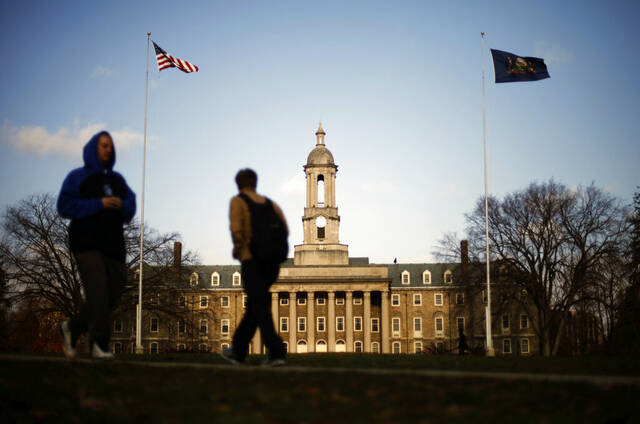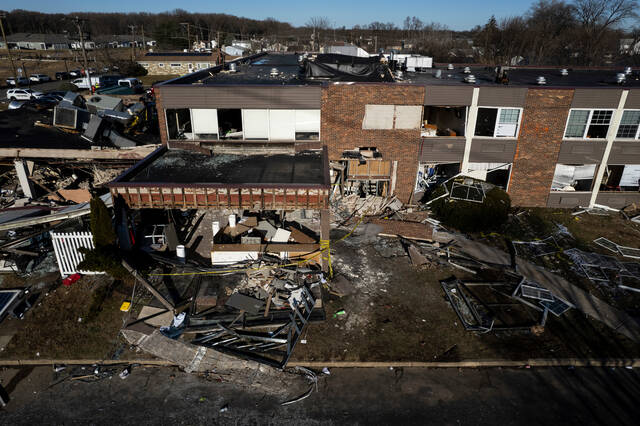High school students applying for undergraduate spots at Penn State University through fall 2025 won’t have to take the SAT or ACT for admission, as the state’s flagship public institution is extending its test-optional policy once again.
Penn State introduced the program in 2020 as a one-year pilot during the pandemic’s early months as SAT and ACT testing availability became problematic. This is the second extension, and it comes with more than 80% of U.S. bachelor’s granting institutions now test free or test-optional, according to one advocacy group’s count.
Penn State’s last extension, in 2021, cited both covid-19’s impact on high school learning and continuing testing access issues.
“One intent of an extension is to continue the standardized testing relief to students. There was already anxiety about tests before the pandemic. Covid-19 added even more stressors and changed college admissions,” said a statement from Rob Springall, assistant vice president for Enrollment Management and executive director of Undergraduate Admissions at Penn State.
“Two more years will also give Penn State the benefit of time to see what has permanently changed and how we can do our work even better,” he added. “We are making this announcement now so current high school juniors and sophomores can make their college application and testing plans.”
The university says that since it went test optional, more than half of its undergraduate applicants have applied without using their SAT or ACT scores.
Nationwide, what began as a small trickle of colleges to make the exam optional— 57 back in 1987 — has grown steadily since. It mushroomed as COVID-19 shuttered campuses and learning went remote.
Today, more than 1,800 colleges and universities do not require the SAT or ACT, from regional public and private universities to the Ivy League, according to FairTest, a New York City-based group long critical of standardized test’s ability to predict college success.
In Pennsylvania, the list shows 127 test-optional or test-free campuses that, in addition to Penn State, include the University of Pittsburgh, Carnegie Mellon University, Duquesne University, Carlow, Chatham, La Roche, Robert Morris and Point Park universities, among other campuses including the State System of Higher Education.
Of the FairTest list, 1,750 schools have ACT/SAT-optional policies for this coming fall and 85 more schools are test-blind or score-free, which according to FairTest means exam results are not considered even if they are submitted.
FairTest’s list also shows that more than 1,450 colleges and universities have made their test-optional and test-blind policies permanent. Ninety more have extended them at least through the fall 2024 admissions cycle. That covers current high school juniors.
“Admissions without test-scores is the “new normal” for this generation of college applicants,” concluded FairTest Public Education Director Bob Schaeffer when the group last updated its test-optional list.
If the U.S. Supreme Court, as many expect, is poised to strike down the use of affirmative action in admission this spring, then schools may look at testing rules anew as they ponder ways to keep their classes diverse, Harry Feder, FairTest’s executive director, said Monday. “I think test optional is here to stay.”








